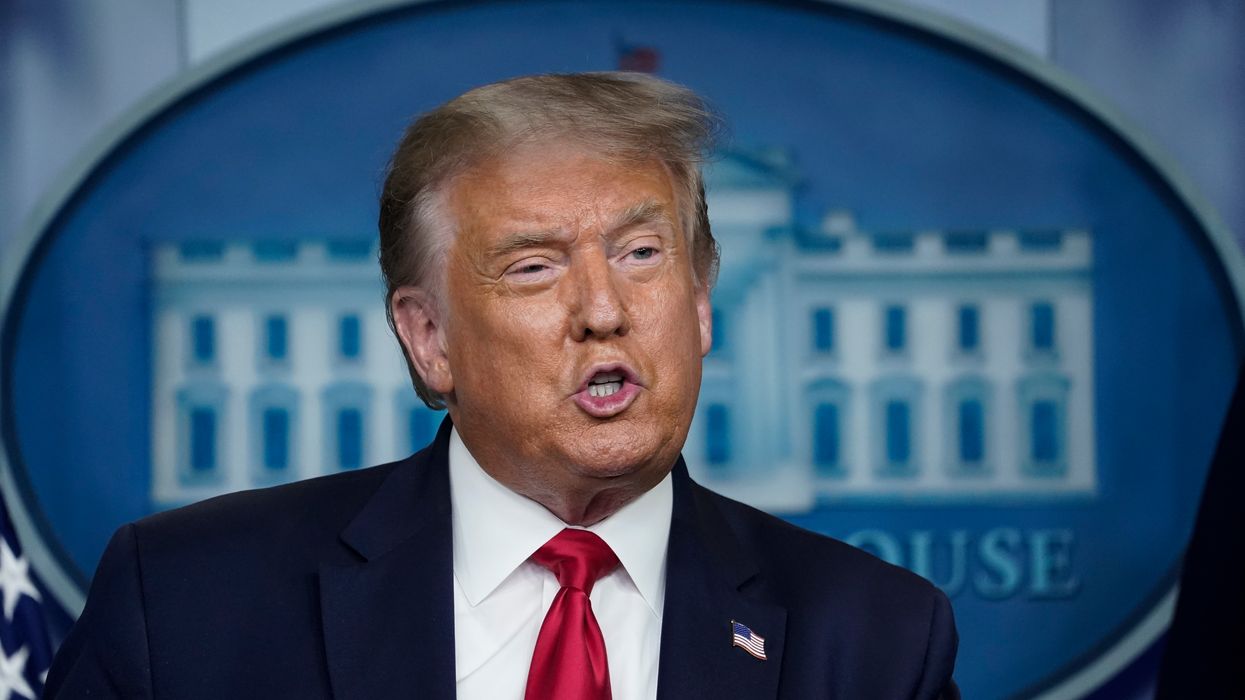Ben-Yehuda is president and CEO of the Truman National Security Project, a progressive defense and foreign policy think tank, and the allied Truman Center for National Policy.
The United States has a long history of voting during periods of intense conflict and division. Secretary of War Edwin Stanton devised the absentee voting system to hold elections during the Civil War and to ensure soldiers on the front lines could exercise their right to vote.
Today, you might say, it's time to vote like it's 1864.
Last week, President Trump suggested on Twitter that the national election be delayed beyond Nov. 3. His supposed reason: a fear of fraud. Let's be clear about three things: First, The president of the United States does not have the authority to change the date of the election. That is a date set by Congress. Even Republican lawmakers have distanced themselves from the remark. Second, fraud associated with mail-in ballots is extremely low. Even the conservative Heritage Foundation think tank has conceded this point. Third, the president is spreading disinformation to undermine trust in the democratic process.
Record numbers of Americans will turn to vote-by-mail options this year and there's much work to be done to ensure full enfranchisement. But the purpose of Trump's tweet is to cast doubt, distract and lay down rhetorical track in an effort to discredit the election and its outcome.
Consider the timing. His statement came on the heels of the country passing 150,000 deaths from Covid-19 — the highest number in the world. It was posted just minutes after the Commerce Department announced the national economy in the second quarter contracted more than at any time on record. And he tweeted just as 19 polls in swing states were released — every one of them showing former Vice President Joe Biden in the lead.
Trump is on the ropes and he knows it. And manufacturing controversy in such moments is his go-to tactic — as true today as it has been over these past weeks, when he deployed federal law enforcement to combat a threat in Portland, Ore., that did not exist.
Ultimately, however, the president's stated intentions themselves present a very real threat. These are well-worn tactics straight out of the authoritarian playbook. Indeed, the last year has brought a steady trickle of democracy-erosion, in which Trump has followed the well-worn path of authoritarian demagogues.
He has sowed doubt about the legitimacy of future elections; predicted election fraud; questioned the reliability of election procedures (in this case, absentee ballots, whose reliability is at least as good as in-person voting); suggested he might not leave even if voted out of office; invented domestic enemies whose defeat requires the aggrandizement of his own power — and, not coincidentally, the preparation of a domestic security force loyal to him; trampled local authority; and telegraphed to anyone familiar with the pattern that he is happy to gut the democratic process to preserve his position.
We cannot doubt that, given the opportunity, the president would follow further in the footsteps of those authoritarian strongmen — led by Turkey's Recep Tayyip Erdoğan, Hungary's Viktor Orbán and Russia's Vladimir Putin — whom he has so publicly admired.
There is compelling evidence he might get that chance: Absentee ballots could take weeks to count after Election Day, offering ample space for accusations of "election rigging" as Americans' expectations of a rapid resolution are dashed. States might fail to certify their members of the Electoral College for so long that the election is ultimately decided by Congress rather than with voters. Federal law enforcement has threatened to send "monitors" around the country who might discourage voting, and local militias have threatened to do the same. And foreign governments, as well as malicious domestic actors, continue to attack our democracy without fear of reprisal.
In short, we face the greatest credible threat to a national election in our lifetimes. The chief architect of that instability and corruption: our own president.
The late great John Lewis told us, "Democracy is not a state. It is an act." This election's credibility will be bolstered in part by high levels of voters acting — by turning out in big enough numbers to produce a margin of victory too big to credibly challenge.
But we need to do more than vote. We need to vote now — to help reduce the flood of ballots to be counted in November and ease the burden on local election officials. Go to vote.org to see if your registration is current and request an absentee ballot. It's especially important for the 3 million eligible voters who live overseas and know all too well the implications of Trump's withdrawal from the world — but who vote at shockingly low levels, with just a 7 percent turnout two years ago. They should go to fvap.org to request an absentee ballot today.
But don't stop there. Help family and friends do the same. If you're healthy and able, sign up to work at your local polling location. The majority of poll workers are older than 60 and more susceptible to dire outcomes after catching Covid-19, meaning our polls are likely to be more under-resourced than usual.
Trump can't delay the election, but he can derail it. Voting early is the best thing to do to keep our election on track.



















Trump & Hegseth gave Mark Kelly a huge 2028 gift